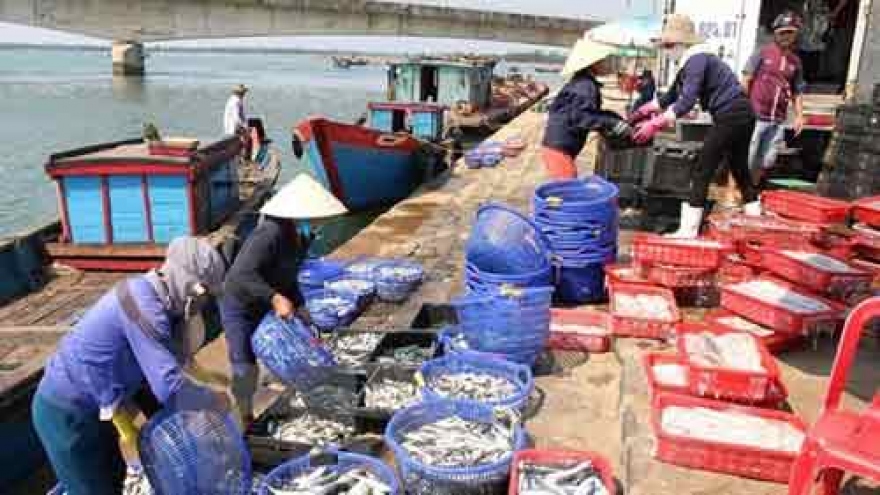Quang Binh, one of the four provinces in central Vietnam hit by a toxic spill disaster in April, has demanded Taiwanese steel firm Formosa pay at least VND4 trillion (US$180 million) to recompense for the devastating impacts on its environment and economy.
The claim was made soon after the company admitted it was responsible for mass fish deaths in Quang Binh and three other provinces.
The province's officials said at a meeting July 4 that the disaster, possibly the biggest environment crisis in the country’s history, has caused losses of nearly VND2.7 trillion (US$120 million) to its salt, fishing and tourism industries as of last week.
 |
| Fishing boats in Quang Binh Province have stayed on shore for the past three months following the mass fish deaths in April |
It is likely that the total damage could reach US$180 million by the end of the year, they said, as cited by Tuoi Tre newspaper.
The waters off the province have been heavily polluted and more than half of the local's seafood resources have been destroyed, they said, adding that some sea creatures "have almost disappeared."
There is also a seafood safety scare across the country and it will be very difficult to recover from this, they said.
Nguyen Huu Hoai, chairman of Quang Binh Province, said the incident caused “serious” consequences, both economically and emotionally.
Hoai said the long-lasting impacts mean relevant agencies need to monitor the damage for many years to come.
Around 100 tons of dead fish washed ashore in Quang Binh and nearby provinces Ha Tinh, Quang Tri and Thua Thien-Hue in April.
Formosa Ha Tinh Steel Corp., which has a plant in Ha Tinh took the blame on June 30, admitting that its sewage discharge caused the problem, following a grand investigation led by the environment ministry. The company said there were faults in the operation trial.
It pledged a compensation fund of US$500 million for the disaster. The government said the compensation process will be transparent.
Scientists joining the environment ministry’s investigation said coral reefs in the affected region will require at least 50 years to recover from the toxic spill.




